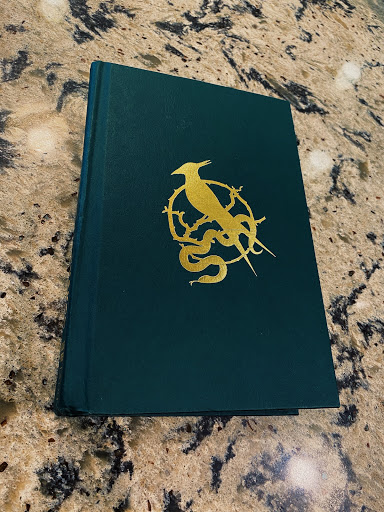Providing Some Intellectual Stimulation, Hunger Games Prequel "The Ballad of Songbirds and Snakes" is Mediocre at Best
In preparation for The Ballad of Songbirds and Snakes, I made sure to reread the original trilogy in its entirety. While I hate to sound cliche, revisiting those books truly felt like a walk down memory lane. Although I already knew what to expect, I still found myself totally engrossed in all three books from cover to cover, completely unable to stop reading at times. The last time I fully read the series was back in middle school, and while the plot-line had not at all changed, I as a reader certainly had, and was able to pick up on subtler messages and moments that I had not noticed or even fully appreciated before. In rereading these books I also came to realize they were fairly satirical, even though at first glance the story line may seem far from comical.
All that being said, by the time I had finished The Hunger Games trilogy (again), I felt just as emotional as the first time, yet also excitedly prepared to dive headfirst into The Ballad of Songbirds and Snakes.
The book is set in a somewhat unfamiliar version of Panem, as it follows the story of young Coriolanus (later known as "President") Snow, as he journeys through some troubling moments of his adolescent life. This all takes place decades before Katniss Everdeen, or the grandeur of the Hunger Games most readers might be more familiar with.
Without revealing too much of the plot, Snow's story does have its own interesting moments, though truthfully they pale in comparison to the action-packed trials and tribulations from the other books of the series. As a character, Coriolanus is at first somewhat hard to read. One might be tempted to sympathize with him, but only to a degree, as his numerous character flaws often outweigh some of his small acts of humanity. For readers who are more familiar with Snow's nefarious behavior later in life, reading his story can at times be difficult or even boring, as he just isn't the kind of character you feel compelled to root for. As a result of this, the book felt a lot slower paced than the previous three, and I often struggled to keep reading it. Perhaps the best way to describe this book is as if one was reading Harry Potter entirely from the perspective of Draco Malfoy (or some other "antagonist" from the series). While it may have some intrigue, the main character's personality is just not compelling enough to truly captivate audiences.
Aside from the actual plot of the book, The Ballad of Songbirds and Snakes still managed to provide some underlying food-for-thought when it came to social structures and the fundamentals of human nature. At times I almost felt like I was reading a treatise written by an Enlightenment thinker (some of whom are, in fact, directly quoted in the book). Terms such as "the social contract" and "the state of nature" were referenced or tossed around quite frequently, and there were times in which Coriolanus seemed to be having his own internal philosophical debates which I found to be quite interesting. Perhaps I only appreciate this aspect of the book because I study politics at school, but nevertheless, the novel still presents the opportunity for thoughtful reflection as to what one believes to be true about the human condition and the way we ought to run our society (which can never hurt to ponder, especially given that it's an election year).
While The Ballad of Songbirds and Snakes certainly is not on par with the rest of The Hunger Games series, it is still a thought-provoking read, that highlights the constant struggle between the powerful and the powerless, and the on-going battle for control and stability in an ever-changing world.


Comments
Post a Comment